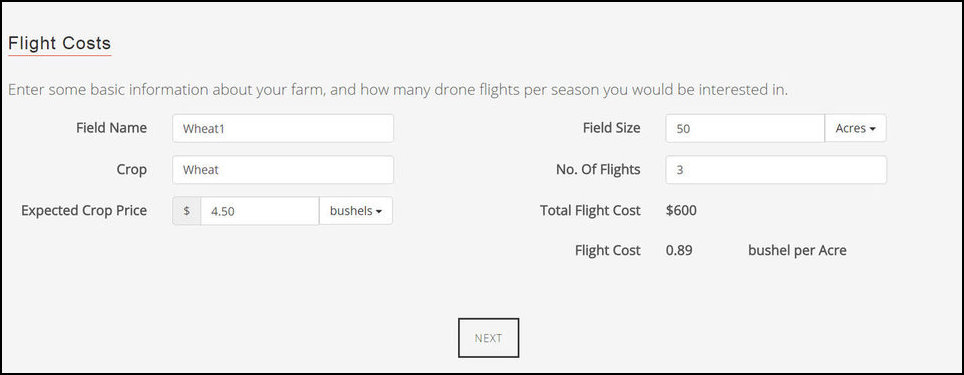Flight calculator can help farmers decide
By Diego Flammini
Assistant Editor, International Content
Farms.com
Drones are becoming an increasingly popular and useful tool when it comes to agriculture but they can be costly; potentially causing farmers to second guess whether a drone is a necessary tool.
If that sounds familiar, an American company is providing farmers with a tool to calculate whether or not a drone is a viable option when considering farm equipment.
Measure, America’s leading drone operator, has released its free Drone Flight Calculator. The calculator is designed to help farmers determine the value of using drones in their agricultural operations.
“The Drone Flight Calculator allows farmers to easily determine if drone technology can improve their operations,” said Measure CEO Brandon Torres Declet in a press release. “While drones have been marketed to farmers, until today no tool existed to help growers quickly and easily calculate the benefits of drones.”
Farmers who practice precision agriculture can use the application by inputting various data including fertilizer usage, crop, and farm size. The calculator then determines the costs of using drones.
The calculator is able to quantify economic benefits for crops including soy, corn and grapes and can even determine per acre and per growing season returns.

Snapshot of the Drone Flight Calculator.
There’s no doubt drones are a very helpful tool in agriculture, but it’s important to understand the rules and regulations set forth by the FAA.
Current legislation states that drones have a flying limit of 400 feet above ground, cannot exceed speeds faster than 45 MPH and the pilot must remain in direct line of sight when operating the drone.
Join the discussion and tell us if you currently use drones on your farm. After using the calculator will you continue to do so?